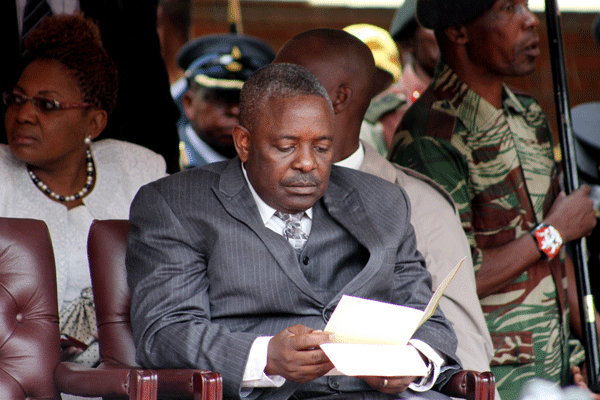‘Zanu PF concealed stake in diamond mining firm’
By Mugove Tafirenyika
Campaign group Global Witness has said the report of Zimbabwe’s parliamentary enquiry into missing diamond revenues detailing some of the hidden interests in the country’s multi-billion dollar diamond industry, notably the security services, has fundamental gaps which suggest that full disclosure is still not the order of the day.

In a damning statement yesterday, Global Witness said despite the parliamentary committee hearing testimony from a procession of former government and security officials, there were serious gaps in the final report.
A document seen by Global Witness — which campaigns against natural resource-related conflict, corruption and associated abuse — said it indicates that a company named “National Reconstruction Group (NRG) hid a stake, held by the ruling Zanu PF in one of the diamond companies. Yet no mention was made of this during the enquiry.”
In September 2017, Global Witness reported that the Central Intelligence Organisation (CIO) — Zimbabwe’s feared and highly partisan spying agency — held a secret stake in a diamond mining company named Kusena Diamonds.
In a startling admission, the CIO’s former director-general Happyton Bonyongwe confirmed this secret source of off-budget funding in his appearance before the enquiry.
A private document, seen in possession of the former director during the hearing, however, appears to indicate that Zanu PF may also have secretly benefitted from the country’s diamonds through a stake in Kusena Diamonds. The stake appears to have been held by a Zanu PF company NRG.
This information does not appear to have been disclosed to the enquiry, despite being in possession of one of its key witnesses, and there is no record of it in the enquiry’s final report, Global Witness said.
“Global Witness has not been able to independently verify this information, nor study the full document the extract is taken from. Some details in the extract, including the concession blocks allocated to Kusena Diamonds, are, however, consistent with what Global Witness has previously reported,” the report said.
“The use of secretive shell companies to conceal off-budget financing to Zimbabwe’s security forces has been a consistent feature of Zimbabwe’s diamond sector. But there has been no previous public indication that the ruling party may also have secured a hidden stake in the industry.
“The possibility that a Zanu PF government awarded a diamond-mining licence to a company in which it held a major stake presents a potentially serious conflict of interest.
“It also potentially limits oversight and transparency in a key part of Zimbabwe’s democratic system by securing the ruling party a hidden source of finances,” the report said. The concept of “blood” or “conflict” diamonds was first highlighted by organizations like Global Witness and others in relation to countries including Sierra Leone and Liberia, where years of civil war and abuses were funded with gems.
Global Witness said secrecy has been one of the defining features of Zimbabwe’s diamond industry.
Former President Robert Mugabe torched a storm when he claimed in a televised interview ahead of his 93rd birthday last year that the country, which is in the throes of a crippling foreign currency crisis, could not account for $15 billion realised from the sale of the gems.
The revelations angered Zimbabweans who have always been suspicious of the goings-on in the controversial Marange diamond fields, with anti-graft watchdogs pushing for an inquiry into the looting of national resources.
The parliamentary portfolio committees have been amongst the few groups able to effectively probe the sector.
A 2013 enquiry, led by the late Edward Chindori-Chininga (MP), reported sustained resistance to their investigations, which had revealed serious concerns about the government’s selection of private investment partners in the country’s Marange diamond fields.
Five years on, and it is unclear how much has changed, despite promised reforms. During the latest parliamentary hearing, former permanent secretary in the ministry of Mines noted that “there are syndicates that are very sophisticated in the country and outside the country and … many beneficiaries get involved to ensure that the truth never comes out.”
And while current and former officials from Zimbabwe’s Police and Central Intelligence Organisation attended the hearing, no official from Zimbabwe’s Army — one of the principal beneficiaries of diamond funds — appeared before the committee, Global Witness said.
Zimbabwe’s first elections since the resignation of long-time president Mugabe are scheduled to take place on July 30 and his successor President Emmerson Mnangagwa has given assurances that they will be free and fair.
In light of Zimbabwe’s troubled history of election violence and manipulation, transparency in campaign and election financing is key to their credibility, the global watchdog said.
“Indications that the ruling party holds commercial vehicles it is unwilling to disclose is at odds with the government’s promises of a decisive break with the practices of the past,” the report said. DailyNews






